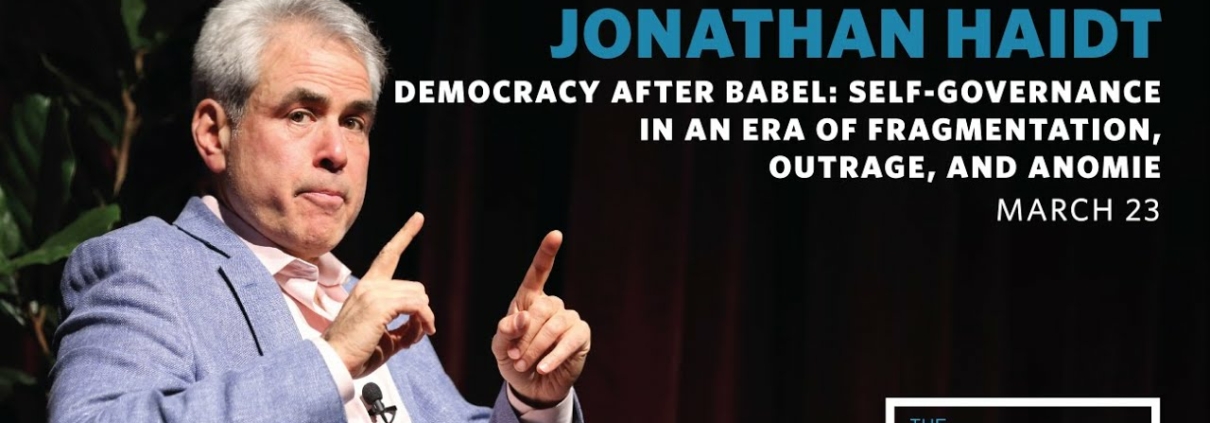Democracy in an Era of Fragmentation, Outrage, and Anomie
In the final event of the 2023 Phil Lind Initiative series, (Un)Civil Discourse, Jonathan Haidt discusses the state of political dysfunction and fracture in the US with his talk Democracy After Babel: Self-governance in an era of fragmentation, outrage, and anomie, moderated by Kathryn Gretsinger. He discusses what moral psychology can teach us about better understanding those who hold opposing viewpoints.
Jonathan Haidt is a social psychologist at New York University’s Stern School of Business. Jonathan received his PhD from the University of Pennsylvania in 1992. His research examines the intuitive foundations of morality and how morality varies across cultural and political divisions. He is the author of The Happiness Hypothesis and the New York Times bestsellers The Righteous Mind and The Coddling of the American Mind (with Greg Lukianoff). He has given four TED Talks, and in 2019 he was inducted into the American Academy of Arts and Sciences. Since 2018 Jonathan has been studying the contributions of social media to the decline of teen mental health and the rise of political dysfunction. He is currently writing two books: Kids in Space: Why Teen Mental Health Is Collapsing and Life after Babel: Adapting to a World We Can No Longer Share.
Kathryn Gretsinger is an associate professor of teaching at the School of Journalism, Writing, and Media. She is a long time public broadcaster at the Canadian Broadcasting Corporation, with a record of creating award-winning work at the local and national level in Canada. Gretsinger is also a Killam Teaching Prize winner and she was named as one of North America’s top innovative journalism educators in 2018. Gretsinger’s scholarship focuses on interdisciplinary learning, including an advisory role with the Lind Initiative, a position as a faculty member in residence at UBC’s Emerging Media Lab, and providing instruction in faculties across the university from the School of Population and Public Health (Drugs and Society) to Science (Communicating Science) to work with scholars from the Peter Wall Institute. She also works with the Centre for the Study of Democratic Institutions, including the Summer Institute for Future Politicians.



